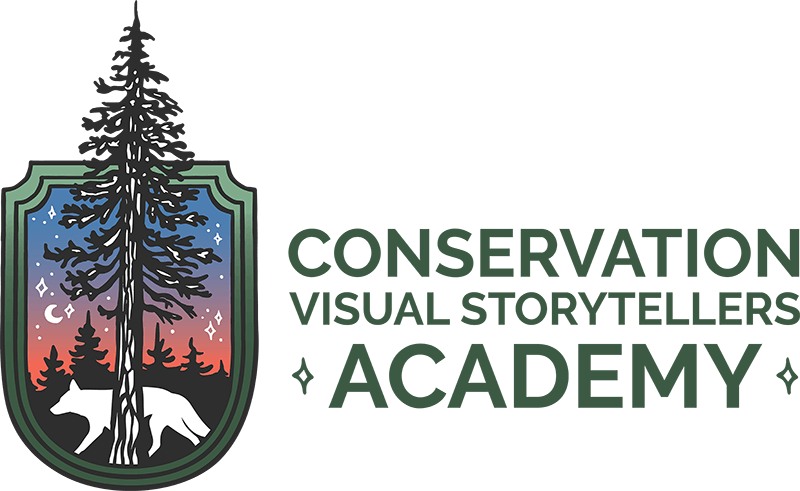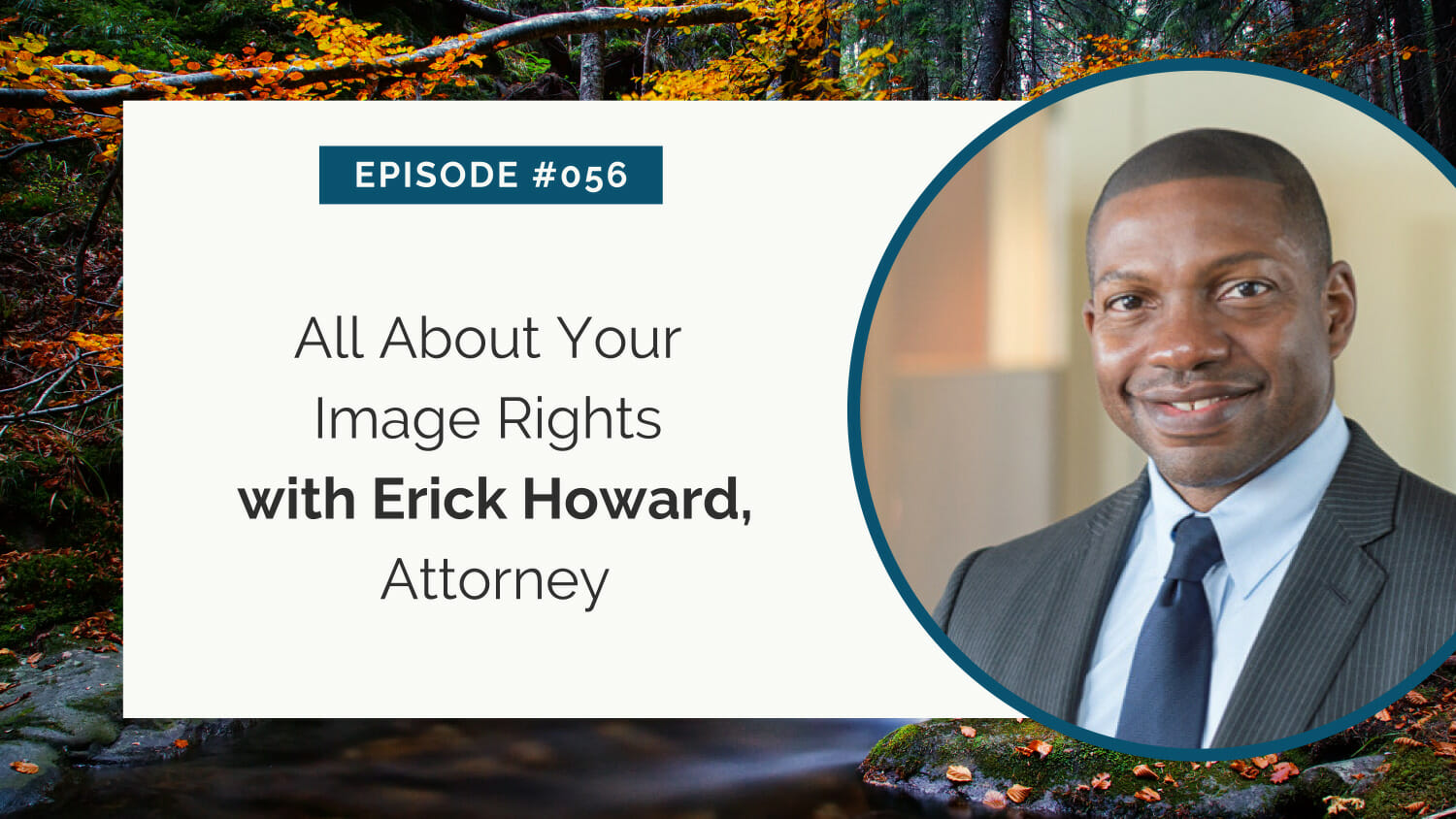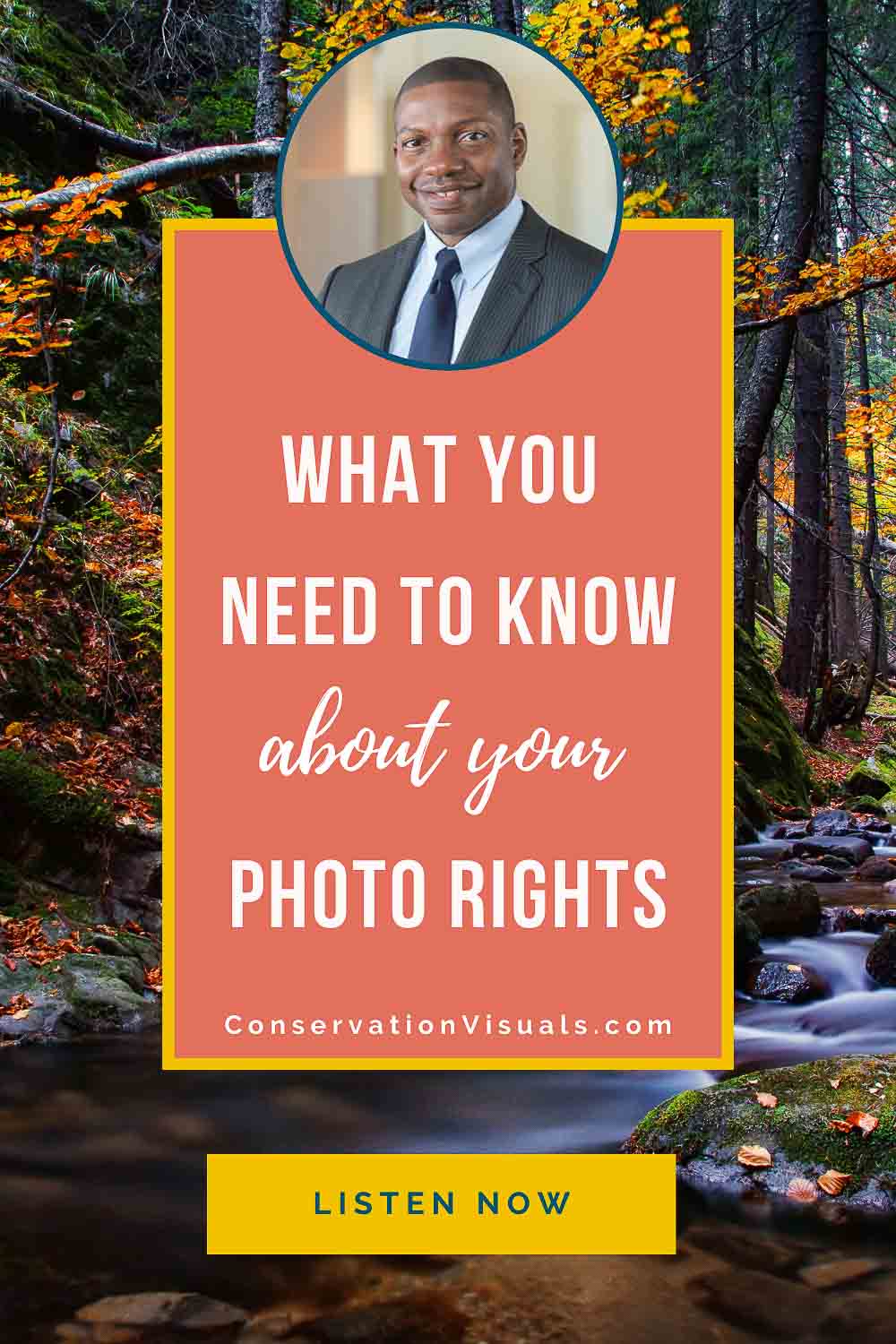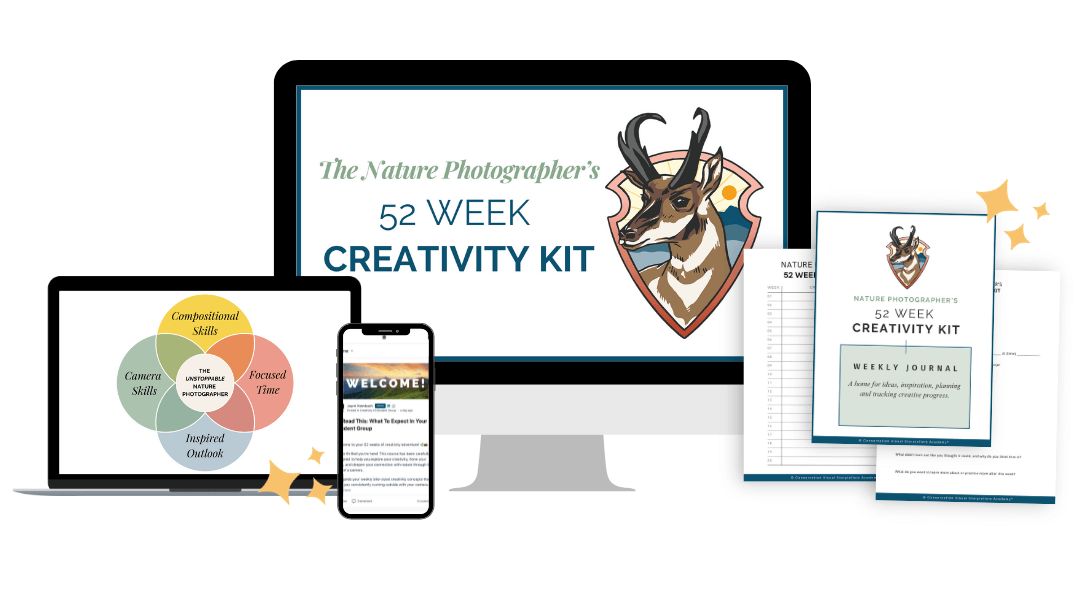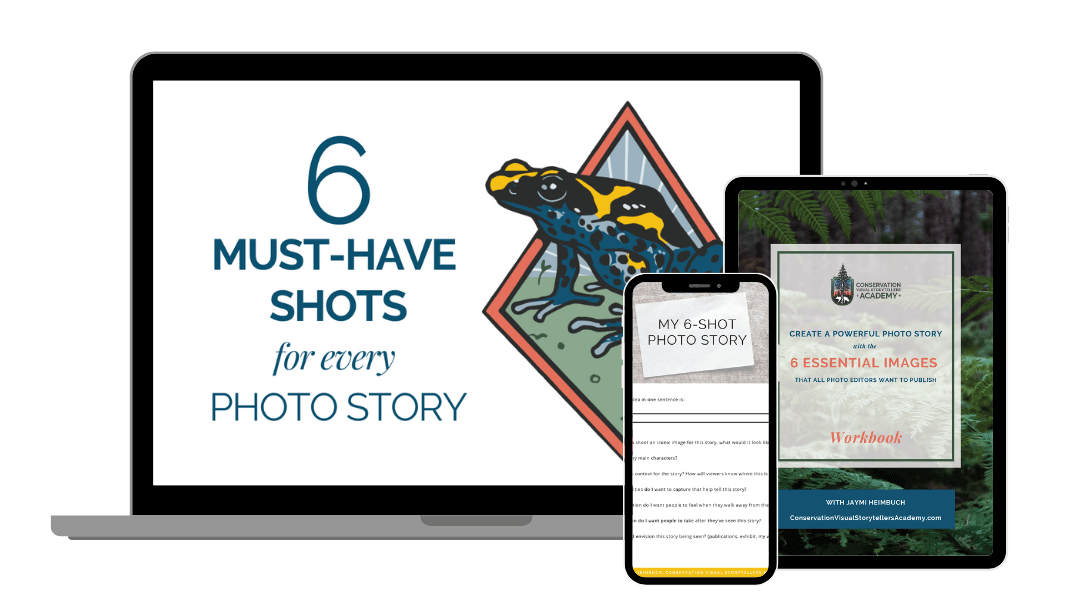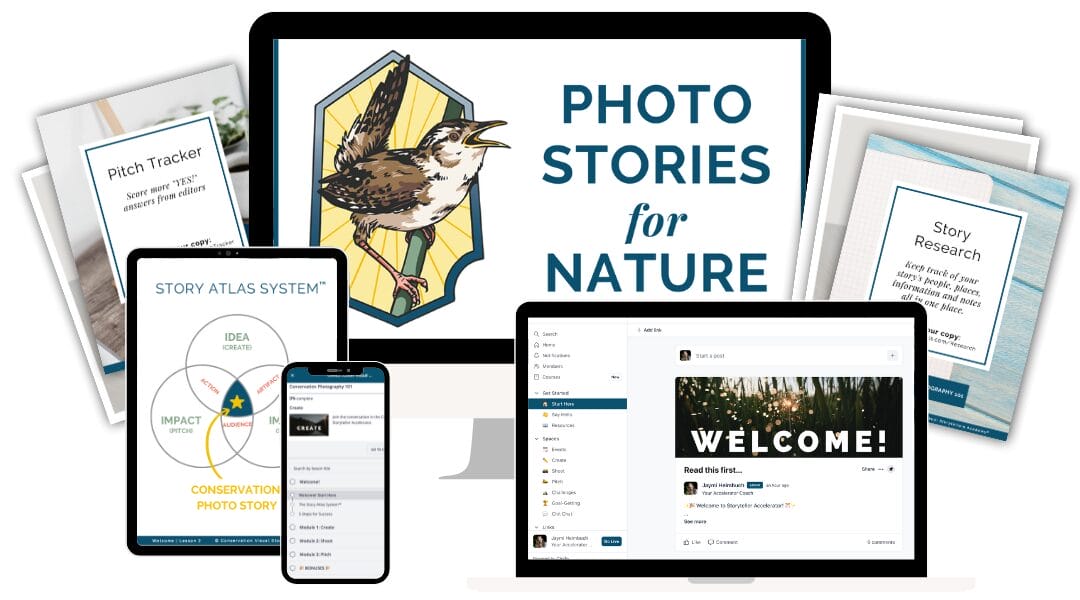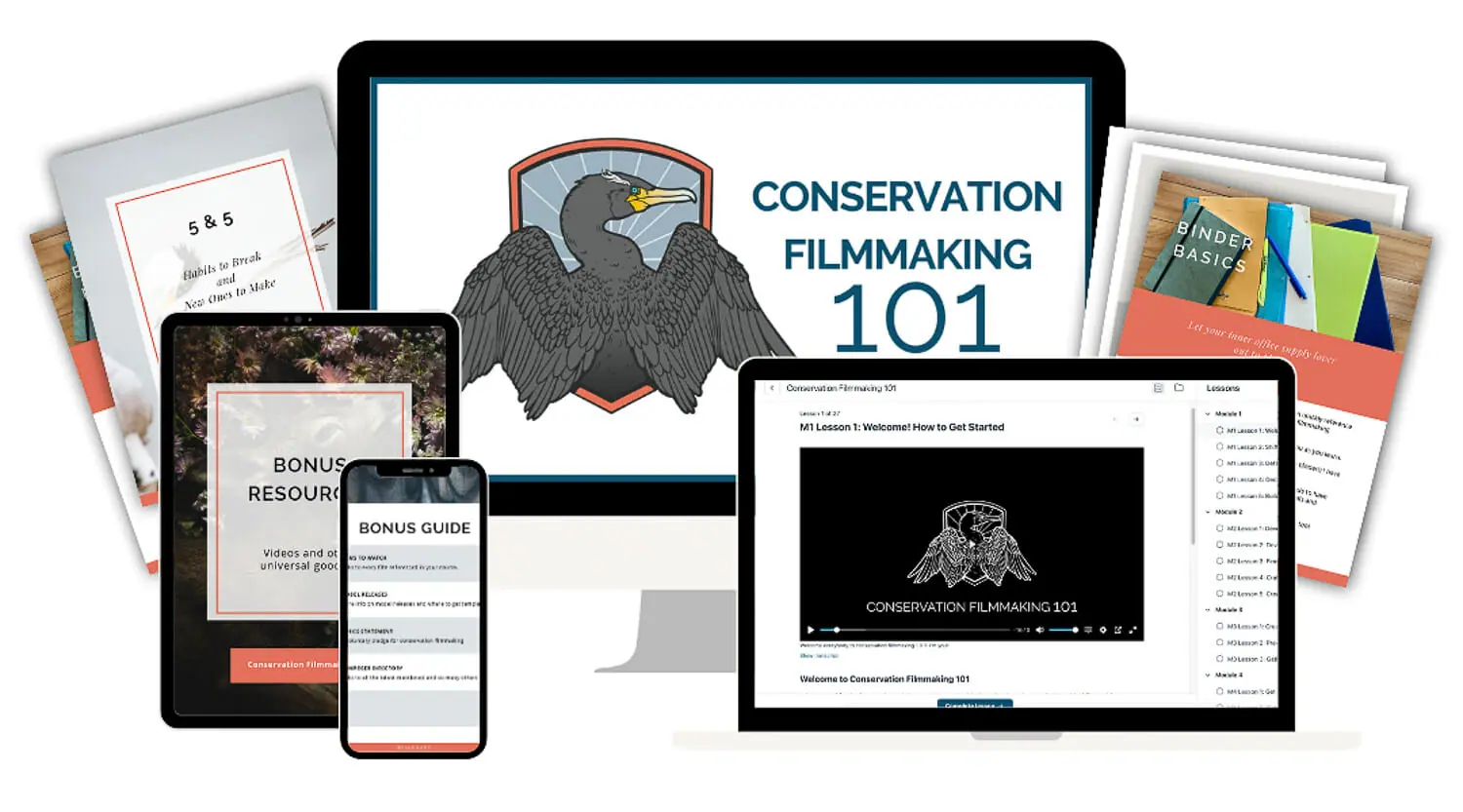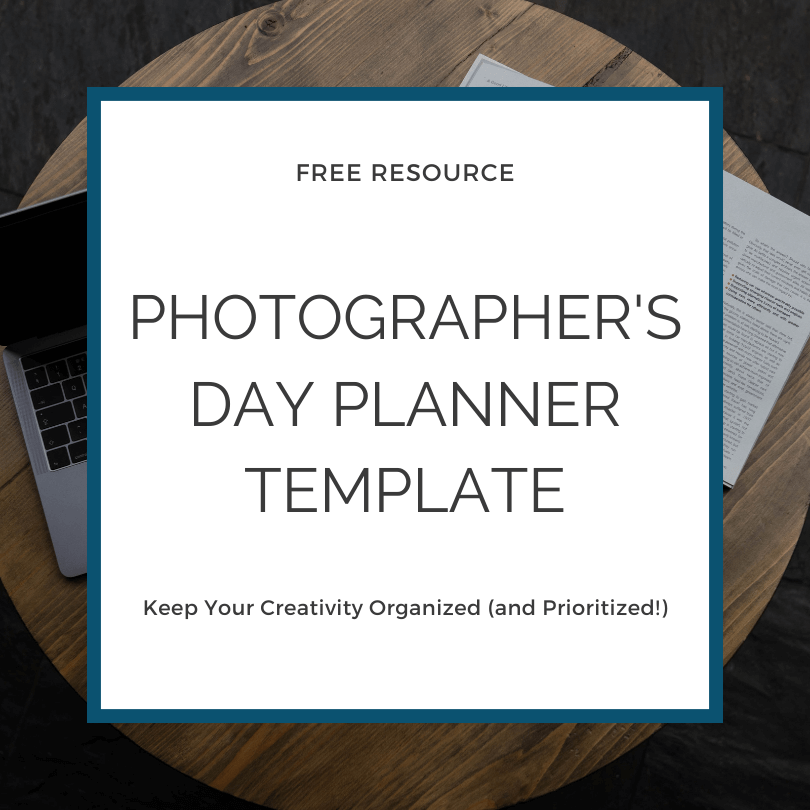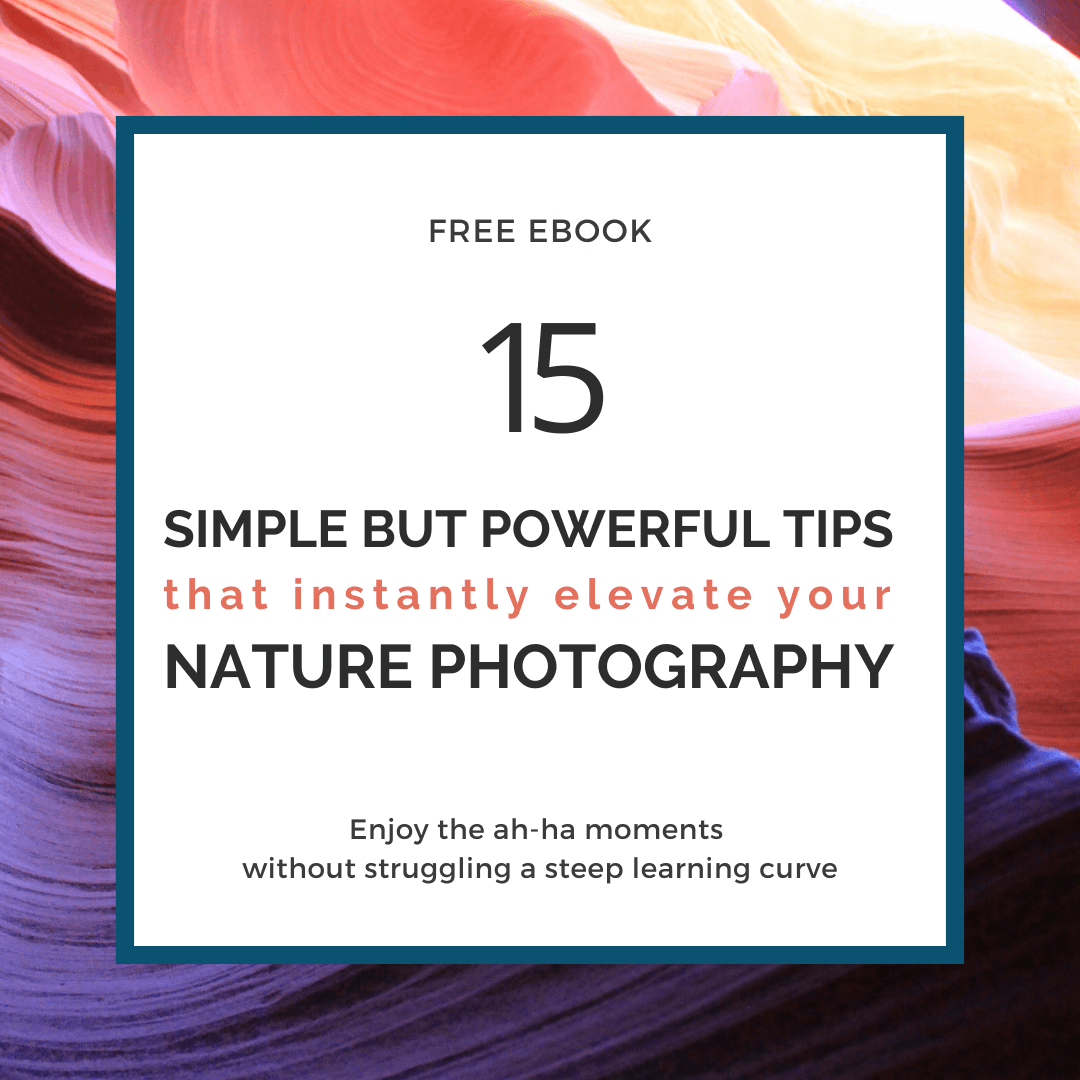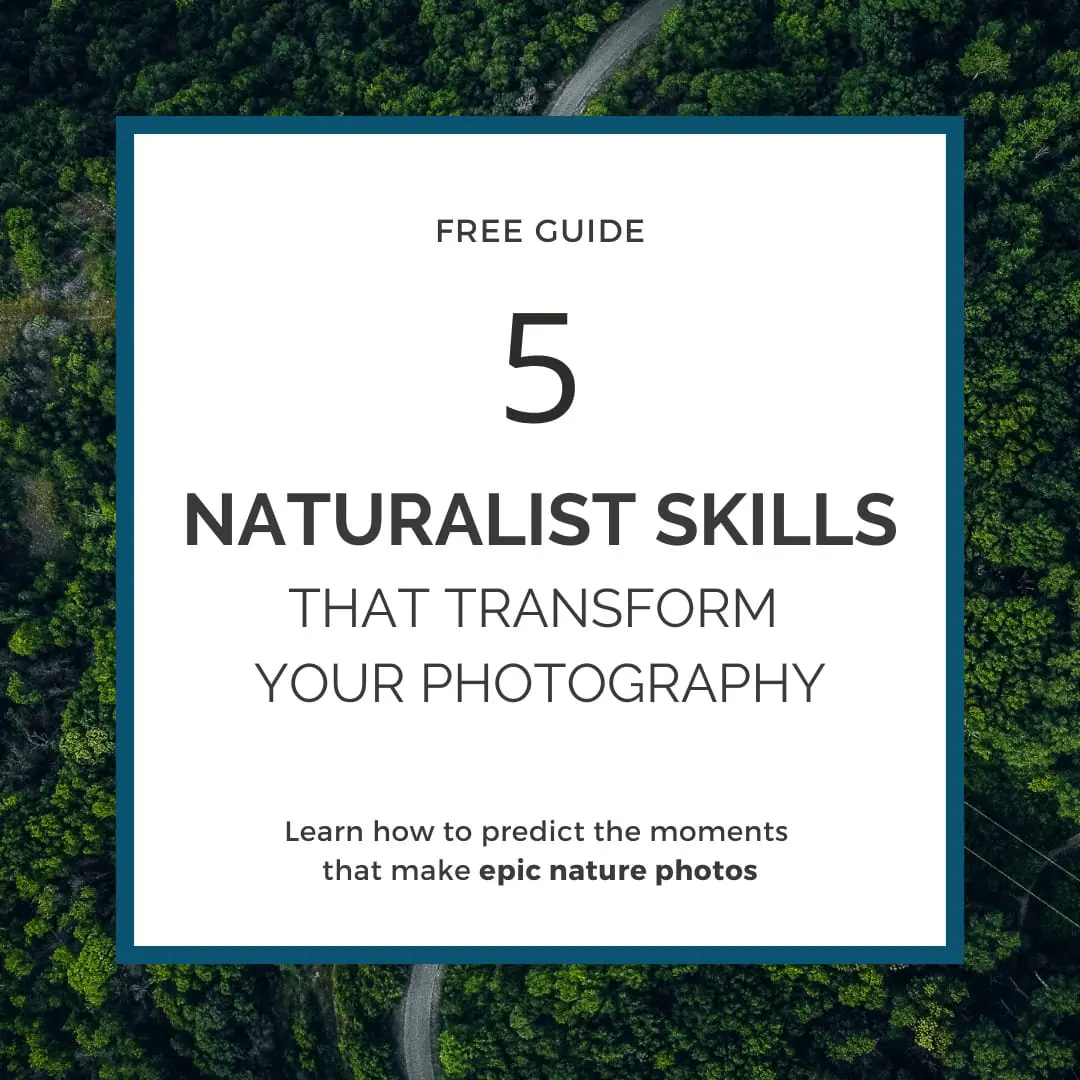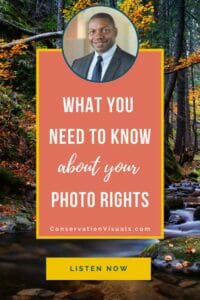All About Your Image Rights with Erick Howard, Attorney
Ever had your images used without permission? Is copyright registration all that important? Is your website legalese up to snuff? In this episode, an intellectual property lawyer explains how to get all your legal ducks in a row.
I got lucky. When I started my career in photography, one of my dearest friends, Erick Howard, who is an intellectual property lawyer, was kind enough to take me under his wing.
For over a decade, he's had my back – from when I was navigating situations like images being used without permission, and when one of my photos went viral. He explained – patiently and persistently – why I had to register my images for copyright and what that process looks like. He helped me with license issues, to trademark my businesses, and to make sure that my website is set up with privacy policies.
I've been lucky to have such guidance, but these are universal headaches. As you become more serious about your work, you start to think about things like copyright registration, how important it is, and when you should care about it.
You might wonder what to do when one of your images is being used without your permission, or perhaps you are concerned about what happens with your images when you post them on social media.
That’s why it is such an honor to have Erick Howard join us to talk about this and share his knowledge with you. Erick is a partner at the San Francisco-based law firm, Shartsis Friese, and today we discuss several of the common issues that he's coached me through over the years.
He also digs into when you do and don’t need a lawyer for something, and what to look for should you decide to consult with one. This is one episode you definitely don't want to skip!
You'll Learn:
- Why, as a photographer, it is vital to have terms of use policies on your website.
- The most common mistakes that jeopardize your ability to protect your legal rights.
- The steps to take when an image of yours has been used without permission.
- When it might be inappropriate and unnecessary to get a lawyer involved.
- How you can best communicate with people who have illegally used your work.
- What copyright registration is and why it is imperative for stopping infringement.
- Why registering your work for copyright is important, even if your work isn’t well known.
- The two biggest obstacles to getting copyright registration.
- What you are getting into when you post images on social media.
- Strategies for driving people to your website without sharing your images.
- When you should think about when consulting with a lawyer and how to choose one.
Resources Mentioned
Episode 056: All About Your Image Rights with Erick Howard, Attorney
Shownotes: ConservationVisuals.com/56
(Digitally transcribed, please forgive any typos)
Jaymi Heimbuch:
Hello and welcome to another episode of Impact, the conservation photography podcast. Thank you so much for tuning in with me, whether you are on a walk or maybe you are driving to a location to go photograph, whatever it may be, I really appreciate you hopping into this episode along with me.
0:00:19.4 JH: And I'm actually really excited about this episode. We're veering away from conservation photography-specific talk to something a little bit more broad, but very, very important, and in fact something that comes up in conversation all the time, and that is copyright and intellectual property ownership. So when you are digging into your photography work, especially when you're getting serious about your work, you start to wonder about things like copyright registration, and how important is that and when should you care about that?
0:00:55.1 JH: You wonder what to do when you find out that one of your images is getting used without your permission, or maybe you're even a little bit nervous about what happens with your images when you put them on social media. Should you be worried about that? What should you pay attention to? Well, I am very, very lucky because when I was first getting started on a professional path in photography, one of my dearest friends also is an intellectual property lawyer, and he pretty much took me under his wing, he always had my back, especially when I was navigating kind of nervous situations like, uh-oh, I did find out that an image of mine was being used without permission. In fact, he was there for me when one of my images went viral and I was finding it all over the place being used without permission.
0:01:41.4 JH: He was there to walk me through why I needed to register my images for copyright and what that process looks like. He's been there for me through licensing issues, even trademarking my businesses and making sure that my website is all set up with privacy policies and terms of service that make sense. So today, I'm really excited because that dear, dear friend is joining us on the podcast to talk about all of that. Everywhere that I stumbled and needed to turn to him on some of these big concepts, we're going to talk about how he coached me through it and what advice he has.
0:02:20.2 JH: So joining us today is Erick Howard. Erick is a partner at the San Francisco-based law firm of Shartsis Friese and he is so generous with information. So as ever, he digs into what thoughts he has about these issues and his perspective on it, and even tells you when you do or don't need a lawyer for something. He also helps us out with figuring out when it's a good idea to go ahead and talk with a lawyer and what to look for in a lawyer when you do decide that you would like to get ahold of one and talk through some issues.
0:02:58.4 JH: So as you can probably tell, this episode is filled with information, and so I just want to remind you that I provide a downloadable transcript for every single podcast episode. So if you find yourself furiously scribbling notes or, as some listeners have told me, even pulling over in the car in order to write notes, well, don't worry. Instead, you can just head over to the show notes for this episode, it's jaymih.com/56, the number 56 for this episode, and you can find that transcript really easily, download it, and you'll have all the information at your fingertips. Alright, that said, let's go ahead and dive into this episode.
0:03:42.3 JH: Welcome to Impact, the conservation photography podcast. I'm your host, Jaymi Heimbuch. And if you are a visual storyteller with a love for all things wild, then you're in the right place. From conservation to creativity, from business to marketing, and everything in between, this podcast is for you, the conservation visual storyteller who is ready to make an impact. Let's dive in.
0:04:13.7 JH: You've probably heard me say this more than once, but there are conservation photo stories happening in every corner of the globe, and that includes right in your own backyard. Now, whether it's literally in your own backyard or in your town or your county, there are without a doubt really interesting conservation stories that are just waiting to be photographed. The trick is, how do you find them? How do you uncover them and shape them and start taking pictures? Well, I am holding a free live masterclass on exactly how to find those local conservation photo stories, and walking you through the essential strategies that help you discover these visually compelling stories that are unfolding right where you're standing, and I'm walking you through the four simple effective steps that will get you from idea into action.
0:05:05.6 JH: Now, I'm only holding a handful of these live masterclasses, so be sure to head over to learnCP.com/local to reserve your spot. Again, it's learnCP.com/local. I can't wait to see you in the masterclass and meanwhile, let's dig into this episode.
0:05:27.9 JH: Well, welcome to the podcast, Erick. It is really extra special to have you on this podcast, because you probably don't even realize it, but you are one of the very first people that I really started to kind of have a friendship with around photography when I moved to the Bay Area.
0:05:43.8 Erick Howard: Thank you for having me, and I did not know that. I feel so honored because I've watched you grow and become this super successful photographer over time, and glad you still talk to me, so.
0:05:58.8 JH: You are one of my dearest friends, so of course, I still talk to you. Okay, so not only are you one of my dearest friends, but you are my intellectual property lawyer, and I am never going to forget when I first met you, the very, very first time I met you. Do you remember when that happened?
0:06:17.7 EH: I think we were at a party at our mutual friend's house down in the Marina. Yeah, I do remember it, I remember it, but you'd better go into detail.
0:06:28.9 JH: Well, so it was a friend's house. It was my house.
0:06:34.3 EH: Oh, your house, okay.
0:06:34.4 JH: Yeah, and I had a party and just invited a handful of friends and... Which was Melissa at the time, your wife, and you came in the door, and I had just started getting really serious into photography once again after kind of having this hiatus, and so I started taking pictures of all my friends. And you turned to me and said, "I don't remember signing a model release when I walked in the door."
0:06:55.8 EH: Oh, yeah, right.
0:07:00.0 JH: And ever since then, from the first moment, you've always been like my guardian angel whenever it comes to anything related to intellectual property and law. And it was actually at another party that I had at my place where I had started up a kind of this little website that was going to have conversation and stuff around photography on it, and you immediately asked to see my terms of use, and you were like, let's get you set up with your terms of use.
0:07:26.0 EH: Oh, I remember that, yeah.
0:07:28.2 JH: It was awesome.
0:07:31.7 EH: Well, I don't want to see you get in trouble. You're a good person.
0:07:36.6 JH: You've always had my back, and that's why I'm so excited that you're here today to talk about some of the ways that you've coached me through some sticky situations. So throughout this interview, basically I'm just going to mention times where I've come to you for input and then we can talk about how you kind of guided me through that. And one of the first things that you did, like you said, was that terms of use on my photography website, that had to do with protecting image content and making sure that anyone who visited my site knew what images could and couldn't be used for. How often is that actually an issue with photographers? Do you see photographers or artists completely forget to have these policies on their website?
0:08:22.6 EH: Yeah, actually, more often than I would like. In fact, sometimes bigger companies have that issue as well, less so now than it used to be, but I've dealt with some small business clients who they've got these nice websites and then I go look for their terms of use, and they don't have any terms of use there at all. Now, because of regulations and things like that, you've got to have terms of use. People are a little bit more sophisticated, but I used to see that quite a bit, and what I would usually... And when I did see them, it would usually be the client had gone on the internet, grabbed terms of use that they'd found and just slapped it on to the website without really understanding what all that legalese and the terms of use mean. And so it wound up just being gobbledegook on their website.
0:09:13.8 EH: So we'd go in and go fix that before any trouble happens. But it is a fairly regular event and, like I said, the rules have gotten more stringent, particularly here in California now about all that, and so, 'cause there are all the privacy policy, plus your terms of use, you have to think about pretty carefully, so it's sort of a common issue, but at least it's not one that has caused a lot of actual problems for people.
0:09:41.5 JH: Great. So what else have you noticed about or common things that pop up for you that you've noticed about artists' websites that might end up landing them in trouble or things that they could be proactive about that people tend to forget about being proactive about?
0:10:00.5 EH: Mostly what I have seen has not so much been things that get folks into legal trouble, but actually might jeopardize their ability to protect their rights, or at least it creates a more of a, sort of a greater likelihood that they might have issues with other folks. Some things that I have seen on those websites is that, you know this well, 'cause I always talk about it with you, about copyrighting your work. But I've gone onto websites of some photographers, and they put up these nice high res 24 megapixel, 47 megapixel images up on their website, but they don't have anything to lock those down, so those could be copied by whoever visits the site, and then that person can go off and go use it.
0:10:46.2 EH: When what they really should be doing is all smaller images, thumbnails, things that are... Sizes that aren't of particular use to people, and obviously trying to lock down their websites in terms of... If they can, if you try to copy the photo, it won't copy. That's mostly sort of what I've seen, this failure to kind of protect the intellectual property that's on the website. Usually for most websites, particularly if people aren't selling a lot through the website, a lot of people go to now professional third party vendors to help do their sales. That isn't too much of a problem in terms of not having, say a terms of use or not having a privacy policy or anything of that nature.
0:11:28.9 EH: I think the one thing that may be a little bit more common is if the website allows people to post things on to it, so comments, stories, their own pictures, sometimes that's an issue because you've gotta have your DMCA, or Digital Millennium Copyright Act notices and procedure for getting infringing work off of your website at that point. Sometimes people don't have that. Other than that, it's usually more issues about you're not doing enough to protect yourself versus you're doing something that's going to get you in trouble with somebody else.
0:12:03.7 JH: Got it. You know, speaking of websites and copying work, one of the things that you've really helped guide me through is when I've found my work on other websites that I didn't give permission for that website to you use it. And so I've come to you and said, I just found this. What should I do? Would you mind digging into what would be a smart step if a photographer discovers that their work has been used without their permission on a website, whether that's maybe a news website or maybe even something where someone's selling a product with that on it?
0:12:34.9 EH: Right, yeah, I know you... The Niners pictures with that... In that birthday costume and it's very, very popular and you should have copyrighted it earlier. And I told you that, and you didn't believe me, and that's what happened.
0:12:49.0 JH: I know. You were... Sorry, we're going to loop back around to that as well, for sure, but...
0:12:54.1 EH: So if you find, and this happens very regularly, if you find that your work has wound up on somebody else's website, one of the things you've got to do is calibrate for where you're finding it, so you mentioned a news, sort of a news organization, a website or something like that. That one may or may not require a more formal response than if you found it on some mom and pop shop's website, because there are people who are more sophisticated about taking stuff and people who are a lot less sophisticated about taking copyright of something they find on the internet. A lot of times, and I've had this happen with some smaller little news organizations, they find a nice picture that they found on a website and they just hit, they right click, they copy it and they just put it up on their website, on their own the website, without any thought about the fact that that may be a protected work.
0:13:52.9 EH: And then it happens very regularly with really, really small, with little shops that have these simple little websites and they've found something that would look cool and so they pop it to their own website. Because you may not necessarily need to get a lawyer involved at that point. If you find it on the website, you can yourself write a polite letter that says, hey, this is my work, and it looks like you clearly copied it over, but you don't have permission to use it, so I'd like you to take it down. And see what their response is. I would say 8 times out of 10, the people who did it are, they understand that they've done something wrong, that they didn't mean to do it, but they didn't know, they did it without thought, and then that will cease the use and that's the end of it.
0:14:42.5 EH: When you get any push back, I think, though, then I think you probably need to get a lawyer involved. Because at that point, you need to be able to bring more of a hammer down on folks, and it kind of depends on the tenor of their response. Some people might say, oh, well, I thought that it was okay to use it because of X, Y and Z, and they'll say the words fair use, is if that's some sort of magic language. And for those people, you might still be able to deal with it yourself, but you might get a much more aggressive response from folks, and at that point, I think it does make sense just to get a lawyer involved, because if the next letter that they get comes from a lawyer, then they pay attention and most people will back down, and even organizations will often back down. And I know we're going to get into this later about the copyright registration and why it's important, but one of the biggest hammers that you have is having a registered copyright that you can point to to stop infringement very early on.
0:15:49.8 EH: And so that's why somebody would want to get that registration, but this is when you need the lawyer to come in and actually communicate that in a convincing way to the other side. But I have made the mistake of coming in very early on and being a real hammer to really sort of small mom and pop shops, and it just... It doesn't work out. I felt very bad about that, and so I try to counsel folks that you've seen this happen, I don't want to necessarily come in yet, I can help you write a letter if you want, or an email if you want, or just tell you what to do. But I don't necessarily want to get involved at this point, 'cause you may not need it, but once you need it, then I'm all in. You can just... There's no reason to create bad blood when you don't need to, and a lot of times I think people just make inadvertent mistakes 'cause it's just so easy to right-click on something, take a picture that you saw, plop it onto your website or onto your news feed or whatever, and think that you're okay because you were allowed to do that. And I think, like I said, 8 times out of 10, people are sorry about the fact that they made that mistake and then they'll immediately correct themselves.
0:16:57.7 JH: And you know, one of the strategies that I know quite a few photographers use is when they do reach out for that initial time, they say, hey, I noticed that you use this... This is a copyrighted image. Here's my licensing fee. Do you recommend doing that? And initially starting out with like, oh, I see you're using this, well, here's the fee for it, here's your invoice.
0:17:18.2 EH: I think that's a fine strategy, I think it's a little... It could be a little aggressive. I think offering to license it and saying, here's my licensing fee for it, it's all really in the way that you're phrasing it, right. If you're coming at someone and saying, yeah, I see you've used this, my licensing fee in this, so now pay it, I think that's a little bit too aggressive. You're likely to get... I think you're more likely to get a more aggressive response back 'cause you're just a little bit too in your face. Now, most people... I think the thought on that strategy, and it may work for a lot of folks, is that those people say, oh no, I don't want to license it, and then they stop.
0:17:58.3 EH: But if you contact them and you tell them, look, I have the copyright and here's my copyright registration, and you're not authorized to use it, and I have the right to stop you from using it immediately, and I have the right to get some money from you because of your infringement, so please stop, people will usually stop and... Without throwing licensing fees and things at them, but then if you make an offer that, hey, look, if you want to use it, I do have a licensing program, and so if you're interested in doing that, let me know, that I think is a way that you might actually get them to understand that they've done something wrong by infringing, but that they can correct it and they can get a licensing fee so they can continue to use this work if they really want to.
0:18:47.7 EH: So I think that might work. So I kinda like that strategy because it opens this door to potentially creating a little business relationship from this infringing activity, but I think that it does not have to be particularly heavy-handed when you do it.
0:19:01.7 JH: That's great input. Thank you. And let's go ahead and loop back around to registered copyright, because I know that this is something that comes up a lot and can be a point of confusion, because this intellectual property that you own the images that you create, that doesn't necessarily mean that you kind of officially own it, and you need to go through the additional step of registering copyright. What exactly is copyright registration and why is it such a valuable thing to do, and why is it that the people listening should not make the mistake that I made and take forever to get on the copyright registration bandwagon?
0:19:38.3 EH: Right. So, copyright registration, there's a little bit of confusion about this because of the way that the different forms of intellectual property work. But under current US law, you get a copyright in a work when you create the work, so if you snap a picture right now, the image that you've created you have a copyright in. Now, you can't really do much with that copyright, even though you have a copyright in it, you can't really do much in terms of enforcing your rights in it or anything like that until you get a registration with the Copyright Office. So what the registration does, it doesn't actually give you rights, but it helps you to be able to kind of more formally give notice of your rights, and then be able enforce those rights later on.
0:20:27.5 EH: So when you get a copyright registration, you fill out this simple form, that I tell clients to do themselves, don't pay me to fill out the form for you, and then you provide the Copyright Office with a copy of the work, and then you get this copyright registration. That copyright registration basically is, gives you a presumption that you created this work, that you're the original author of the work, and that you are entitled to all the rights that you get when you get a copyright, and so that's what you can then use to go out and enforce against other people. So that's what the registration is giving you.
0:21:03.8 EH: But the most important thing that a registration gives you, I think, or that I am a litigator and I go to court and try cases, is that it is the only way that you can, in the United States, be able to go into court and sue somebody for copyright infringement, have to have a copyright registration first before you can bring a lawsuit. So getting the registration is a huge part of the game for a photographer who wants to protect their work, so because when if somebody... If they find out that somebody is infringing, they need to have a way to be able to enforce and vindicate their rights if that person will not cease their infringement or pay money for a license that they should have paid, but they wind up not paying because they just took... Stole the work.
0:21:52.7 EH: So you need to have that ability to go into court, we have to have the registration to be able to go into court. That's why you want to jump on the bandwagon early and not late, and not put a bunch of works that you're really, really proud of out there into the world that don't have copyright registrations, 'cause when you wind up finding them on a billboard some place, you've then got to go back and try to correct yourself, get a registration, then you can go back and go and sue and at that point, you lost a lot of leverage and a lot of the effectiveness of the hammer of having that registration.
0:22:26.6 EH: So that I think is the number one lesson that I think every photographer should just kind of bang into their head that they've got to get registrations for things that they really care about. Doesn't have to be for every work, but for everything you actually care about, that you think could be of value, you want to make money off of, you want to actually exploit, you should get a copyright registration and get it early, and if you make variations of the work, often.
0:22:52.1 JH: I think that there's two barriers. At least, I feel like, for me anyway, there were two barriers to getting going on something that has now become a really easy part of my workflow, and then the cost of registering stuff is just a cost of being in business. But the two barriers for me were, one, when I was first getting started, I'm like, oh, I'm a nobody, I'm not a professional photographer. It doesn't really matter. So I'm just going to pump all of these images out into the world without really thinking about what might happen. But the fact is, it doesn't matter your professional status or experience level, images get stolen right and left, so if you're putting images out there, this should be part of the workflow.
0:23:27.8 JH: And the second barrier was that the copyright registration process just looks so cumbersome and intimidating, but once you go through it that first time, and then a lot of times the information is pre-filled, so the second time is even easier, that barrier of the first time of being like, well, which box do I check and what do I put in here? You can... I feel like it turns a lot of people off to actually getting into that workflow, getting used to the system and the interface and just going for it.
0:23:58.0 EH: Right, right. I understand both of those things, as you know, I do, I take a lot of photos myself, and I am a copyright IP lawyer, and I don't have a single thing copyrighted. Because I'm stuck in that first part, right? Oh, I'm a nobody and it doesn't really matter, and if I put this up on Facebook and if I put this up on Instagram, who's going to take it? Nobody cares, it's fine, I don't care. Right. So that's where I'm stuck, and I've been stuck like that, even as I have lectured you for years, and you have been taking me up, you've got out, you have a workflow now, you have done everything. And when I think about that and I go, I should really do that, and then I don't do it. So I know that mentality very well.
0:24:44.5 EH: But here's the thing, and you were the perfect example of this, because of the Niner photo. The Niner photo went viral and it went kind of viral, like cyclically. You would call me up two or three times a year, I've found it someplace else, what's going on, blah, blah, blah. And you just never know, 'cause you didn't take that photo, I don't think, I don't recall that you took this photo with the intention that you were going to market it and make money off of it or anything like that, but you put up there, it's a super cool photo and it resonated with people. And you never know what will actually resonate with people. So if you're thinking about doing photography professionally and you are creating these works, you really have to jump on and get over the I'm a nobody as early as you can, and just get past that mental block so that you can...
0:25:39.5 EH: Because if your work has been out there, you don't know what will hit, and when it hits, you don't want to be behind the eight ball trying to stop infringers, particularly for all these things you put on the internet, so it's just going to continue to proliferate without any real good means to protect yourself. You know, the second part of the process, or the second hurdle, I understand, because the trademark, I mean, the Copyright Office website is abysmal, when you go to actually do the registration part, when you're filling out the form, so that website is from like 1999. You look at the fonts and the colors and how it's set up, they haven't updated that at all. The front part of the website, it looks great, and you think would they would simply update that second part, but as you say, it does become, after you've done it once, it's very easy to continue to do it over and over again.
0:26:37.8 EH: I've had clients who didn't want to mess with the website initially, and then so they had me do it, and then of course they got the bill and then they figured out, oh, I'm going to trudge through and do it on the website and figure it out. And now they just click through, it works very smoothly. But it's not actually that complicated once you've kind of work your way through it the first time. After that, you understand what the terminology is and the Copyright Office is very good. Much better than, say, the Trademark Office and the Patent Office doesn't even even bother, really, with sending out these circulars that tell you how to register things and what can be registered, and they go into great detail about the different forms of registrations that you can get. And this is because they expect that regular people, people who are not lawyers and are paid to do it, are going to be filing their own registrations for copyright, so it's pretty user-friendly if you actually try to wade into it.
0:27:35.3 JH: Yeah. In fact, I am going to go ahead and in the show notes, I'll write out what my workflow is from basically importing images to Lightroom, all the way through getting them into copyright registration. And I remember watching a tutorial video on exactly what to click where and why for registering, so I'll link to some of these tutorials that they have, because I do feel like there's resources out there that walk you through pretty easily what exactly it is that you're supposed to do.
0:28:03.3 JH: But I do want to dig into one other thing, because this relates so much to the idea of, especially with people who don't feel like they're professionals or this is a hobby, and so they're putting images on to Instagram, and there has been so much talk about Instagram policies and terms of use, and in fact, just last week, my mom texted me and she's like, you know, Instagram sent me a notice that they updated their terms of use, and I actually bothered to read it and I found this. What does this mean, they can sub-license and they can do all of this stuff. And among photographers, it's definitely been this point of contention about what it is that you are allowing Instagram to... Like what control you're allowing Instagram to have over your work when you post.
0:28:48.9 JH: Do you have thoughts about, I don't know, about the terms of use that Instagram has or how photographers might be a little more savvy when they use Instagram?
0:29:00.8 EH: Yeah, I have thoughts on both. I think that Instagram can have the terms of use that it wants to have. I think they could be, and they should be, more upfront about what the changes to their terms of use are when they have them. You get a notice that, oh, we changed the terms of use, and then they know nobody reads them because they bury the lead, so if they've changed how they're going to do sub-licensing or their scope or whatnot, it's not right there in your face to make you look at those particular provisions in the terms of use.
0:29:38.2 EH: I think that if you're a photographer, whether you're a professional or an enthusiast, and you are... You know, if you have any concerns about the use of your work, it is worth it to actually read through the terms of use for the different websites that you are going to be posting to, or find articles. I think you can find anything on a Google search these days that will just distill down what are the terms of use on Instagram or Facebook or 500px or whatever website is out there, so that you have a real understanding of what you're giving away potentially when you post to these websites. The thing about these websites is that none of these websites, or very few of them, purport to say that they take some sort of an ownership interest in anything that gets uploaded, but what they do take is these are very broad licensing rights, by giving a worldwide license, non-exclusive, so you can continue to use your work and do what you want to with it, but they also can use your work for almost any purpose anywhere in the world, in any medium that exists now or that may ever come up.
0:30:47.4 EH: That's a huge, broad range that you're giving away when you post up something on say an Instagram, so I think that the savvy way to deal with that is to decide what are you actually going to put on Instagram. Everybody has works that they think are exemplary and things that they're really good, and things that are okay, and things that they would throw away. And you've got to be savvy about what you're actually willing to give away to a website like... Or to a service like Instagram in terms of the pictures that you're going to put up. You may not want to put up your superlative photographs up there, right, even though those would be the best ones for people to look at. You might want to go dial down, if you want to use that platform and you know that you have your concerns about use and you know what sort of terms of use they have, maybe you want to sort of dial it down and then direct people to your website where you can show off your more superlative work and then have a way that you're protecting that a little bit better.
0:31:49.6 EH: I think that's the real trick to using a lot of these websites. As I said, I'm still stuck in the first hurdle, thinking, oh, well, I'm not a professional, I'm not going to be, but I don't put up all the things I think I really, really, really like up on a Facebook post. They're mostly, that's just my kids now, so it doesn't really matter. But I don't put up some photos that I really invested in on there, I just... I have a little website and I'll put them there, but I'm not going to put them up on Facebook 'cause I don't want to find out that they changed their terms of service, which they can do unilaterally and then they've given themselves all these rights and then it shows up someplace else that I may never would have thought that it would have shown up.
0:32:36.7 EH: And you just have to manage yourself that way, and obviously there are going to be other places that are going to be much more friendly to photographers and the protection of their rights, and so you may want to more focus your efforts in those areas rather than putting everything up on a Facebook or an Instagram or whatever, because that's where... You know that's where a lot of people go, obviously, millions of people are going there, but that doesn't necessarily mean that you need to jump into that sort of whole hog.
0:33:05.7 JH: I love the idea of that strategy where you can put up basically a teaser on Instagram and then drive people to your website for the best of the work and be able to kind of manage your own rights around something, while still taking advantage of what a platform like Instagram can give you for audience engagement and exposure and that sort of thing. One thing I would love to ask you about, because I got very lucky in that you were a friend of mine who then became my lawyer, my guardian angel lawyer, but not everyone's so lucky. So if a photographer needs an intellectual property lawyer... Well, actually, let me put this into two parts, one, when do you think a photographer should get in touch with and hire an intellectual property lawyer, and two, what should they look for in trying to find the just right lawyer for them?
0:34:00.0 EH: Obviously, for anybody listening to this podcast, they should just come to me, I'm sure you're going to put more information in the show notes, so it's good. But so when a photographer come to a lawyer? I think that sort of like you, if you're a photographer and you're thinking about going to the next level and making a career out of it, I think it is worth having a talk with an intellectual property attorney just to get a lay of the land, just so that you know and can learn about the basics. One thing, I've been doing this for almost a quarter century now, which is hard for me to believe, but in my time, whether I'm dealing with individuals or I'm dealing with organizations, I'm kind of shocked how much people don't pay attention to the sort of intellectual property aspects. They get really excited about the business that they're going to go into, and they have all these plans, business models and things like that, but they don't really think about the protection of their intellectual property as much, they don't have real plans for that.
0:35:02.4 EH: So I think it's worth it to go in and just spend a little bit of time with an attorney just to get a good lay of the land. The things that we're talking about right now, certainly can learn a lot of this stuff by, like I say, Google searches and things like that, but I think actually sitting down with somebody when you are putting together your business so that you are aware of the different pitfalls that aren't going to be apparent to somebody who doesn't live and breathe this stuff, so I think it's worth it at that point. And obviously, if you ever have a problem, then I think getting an attorney involved just for a consultation is a good thing to do.
0:35:39.5 EH: In terms of how you choose an intellectual property attorney, I think most of it is, I think probably the best way is sort of word of mouth. There are services out there that you could use, you go to a LegalZoom and things of that nature, and I find that they'll help you to a point, but they're not... They're not like me being your attorney, your personal attorney, who actually is invested in you and you being successful and making sure that your rights are protected. Those sorts of services go up to a point and then they're not there anymore for you, and there's nobody for you to really talk to, I think. So word of mouth, asking friends about do they know an attorney, do they know, because that attorney may know somebody who is an intellectual property attorney, the local bar associations may have lists of people who are, have various practices, and you can identify people that way.
0:36:39.9 EH: You can look and see what people's specialties are, 'cause within law obviously there's always people who have a particular specialty, so there are people who deal with book publishing copyrights, and there are people who deal with photography, and there are people who deal with film, and you can find somebody who matches what you're doing, I think. And you can cold call somebody and say I want to talk to a lawyer. I get a fair amount of people who come through and they call the firm, and then people at my firm call me 'cause they know that I'm doing that sort of IP work. So that can be a way to do it, but I think it's... You don't want to wait until you've had the problem to try to go get an attorney, it just doesn't feel good to anybody, right, 'cause it's bad at that point, you're just... Right, the attorney is either going to give you really, is going to give you kind of good news in that you have a case or you have a defense or whatever, or they're going to give you really bad news that you don't. And either way, it's costing you money, probably more money than if you had done the preventative step of looking for an attorney and then kinda navigating the waters before you actually get into the rough patches.
0:37:53.4 JH: That's really, really great information too. Just the thought, the idea that going to a lawyer early is not scary, it's actually getting you ahead of potential problems and helping you to understand what risks there are to avoid them. I definitely agree with you that anyone listening needs to come to you if they have any issue, everything about you and where they can find you is going to be in the show notes.
0:38:20.0 JH: Well, I am so appreciative of you giving us so much information, you're always so generous with your thoughts, and I feel like you want to make sure that everybody has the easiest time, and that includes people who might have accidentally used work without realizing that they couldn't, as well as the person who created the work. And your whole approach about benefit of the doubt and kindness, and then making sure that you as the creator are getting the best possible outcome, I just really love that about you. And you've been so generous and I just really appreciate you having our backs all the time.
0:39:04.9 EH: Thank you. I want to be clear, I do believe in kindness and giving the benefit of the doubt, but when I bring that need to bring the hammer down, the hammer comes down. I don't want anybody to think that I'm going to be a pushover, but a lot of times you don't need to do that. It's been a privilege and an honor to not only just to be your friend, but to be your lawyer and really to see, like I said before, to see how you have grown into this, because I remember when this was just your hobby, you were thinking about maybe you could do a little bit more professional with it, and then you just really, you took off and all the sort of the learning that you've done and how you've then applied that and what you've created now is just... I get a little giddy every time I see your post.
0:39:52.3 JH: Oh, Erick. Well, we're getting on the mushy side, but honestly, it loops back around to what I originally said, where you were one of the first people that I ever really connected with and could talk photography with, and to be excited about it. And I think that so much of anyone's growth is about surrounding themselves with a supportive network of people who are smarter than you are and who can guide you in all sorts of different ways, so just high-fives...
0:40:18.4 EH: And you kind of messed up, but that's okay. I do my best.
0:40:24.6 JH: I know, well, and I think that... Well, okay, so one more point about finding the right lawyer is the right lawyer is going to be someone just like you who says, I think that you should do this, and then when you make your own decision of like I can probably get away with it, the lawyer can come back and be like, no, no, I think that you should do this and you should listen. Because you've definitely guided me through some things where I gave some pushback, I was like, I don't know, I'm not really there yet as a serious photographer, or is it really that big of a deal, or that seems hard, and then you helped me to see why it is so valuable to be proactive, to be smart about your rights and responsibilities, and to avoid issues.
0:41:04.3 EH: Again, I think people underestimate all that all the time, and I get it, 'cause I do it myself, so it's not like I'm any better than anybody else, but through this 25 years-plus of practice, I've seen a lot, and a lot of variations on how things go bad, and then I've also seen a lot of variations of how with a little forethought you avoid big problems, and so that's what I try to do for folks and let them do what they can do, like I said, I don't have... I don't do copyright application unless somebody insists that we do them, 'cause we don't think we need to do that, they don't need to pay a lawyer to do that. There are other things that they really do have to have a lawyer do, and I try to calibrate for that.
0:41:56.4 EH: But yeah, you know, IP is just really fun and obviously because I have a love of photography as a particular interest, and I guess that's maybe one thing, it's something else to look for in a lawyer, 'cause you want to have a connection, some sort of connection, I think. And if you've got a lawyer who actually likes their area because they have an interest in that area aside from the law, I think that's actually a helpful thing, because they'll be thinking a little bit more like you're thinking, to a certain extent, so.
0:42:29.0 JH: Alright, well, thank you so much for all of this information. As I mentioned, everything about finding you and contacting you can be found in the show notes as well as an overview of my personal work flow in choosing what images I'm going to copyright and how I do all of that, as well as links to resources for copywriting. Of course, there's so much more information out there on this. Erick, do you happen to have any recommendations on kind of not one-stop shops, but really good places to find high quality information about intellectual property in case anyone wants to do some digging on a trustworthy place?
0:43:07.8 EH: I would say that probably the best places to go are the websites of the major forms of intellectual property, so the copyright.gov, the USPTO website for patents and for trademarks, 'cause if you're starting a business, you're going to need that sort of stuff, particularly on a trademark. They have, as I said before, particularly in the Copyright Office, is really, really good resources, and they have good explanations, they have lots of good examples and it makes that full process of getting started, it is accessible to an extent that you can feel more comfortable. I think particularly for things like photographs and multimedia, which are your more traditional types of copyrighted works, so it's easy to describe how to do those sorts of registrations and things like that, and so I think those are really good, really good sources.
0:44:04.1 JH: Perfect, thank you. Well, Erick, it is a joy as always to get to talk with you.
0:44:10.0 EH: You too, I'm glad we were able to catch up. We'll catch up more outside of a podcast, but this has been great, thank you so much for inviting me. I really enjoyed it.
0:44:19.0 JH: Before we wrap up, I would love to ask you to do one quick thing: Subscribe to this podcast. As a subscriber, you'll not only know when each week's episode goes live, but you'll also get insider goodies, like bonus episodes. You might miss them unless you're subscribed, and I don't want you to miss out on a thing. So please tap that subscribe button and I will talk to you next week.
